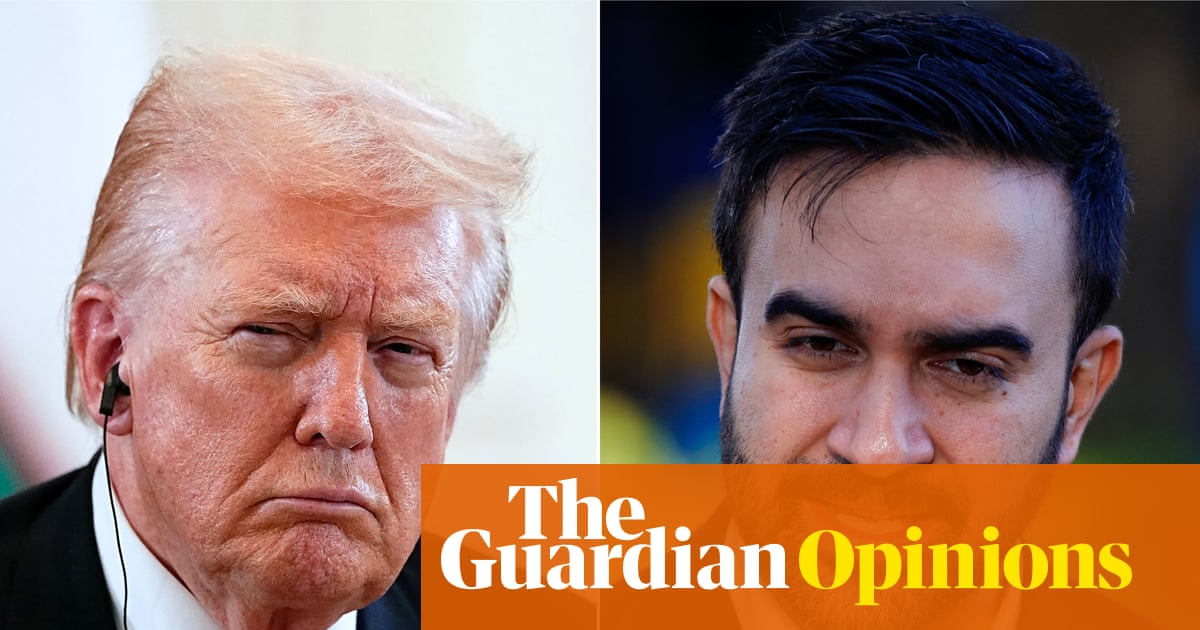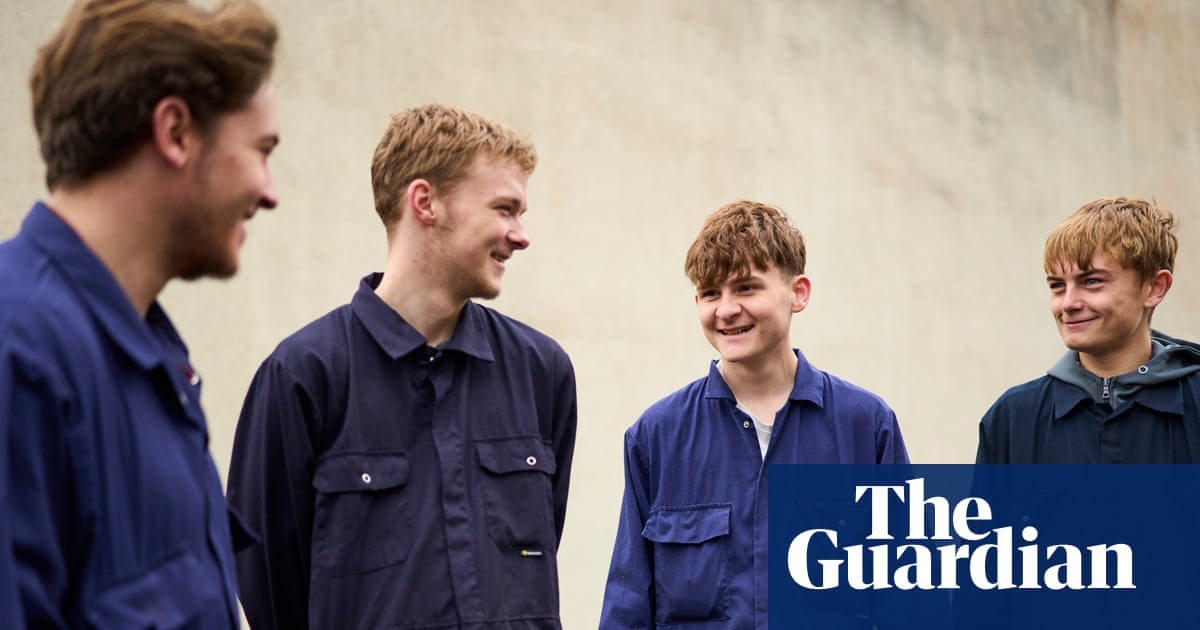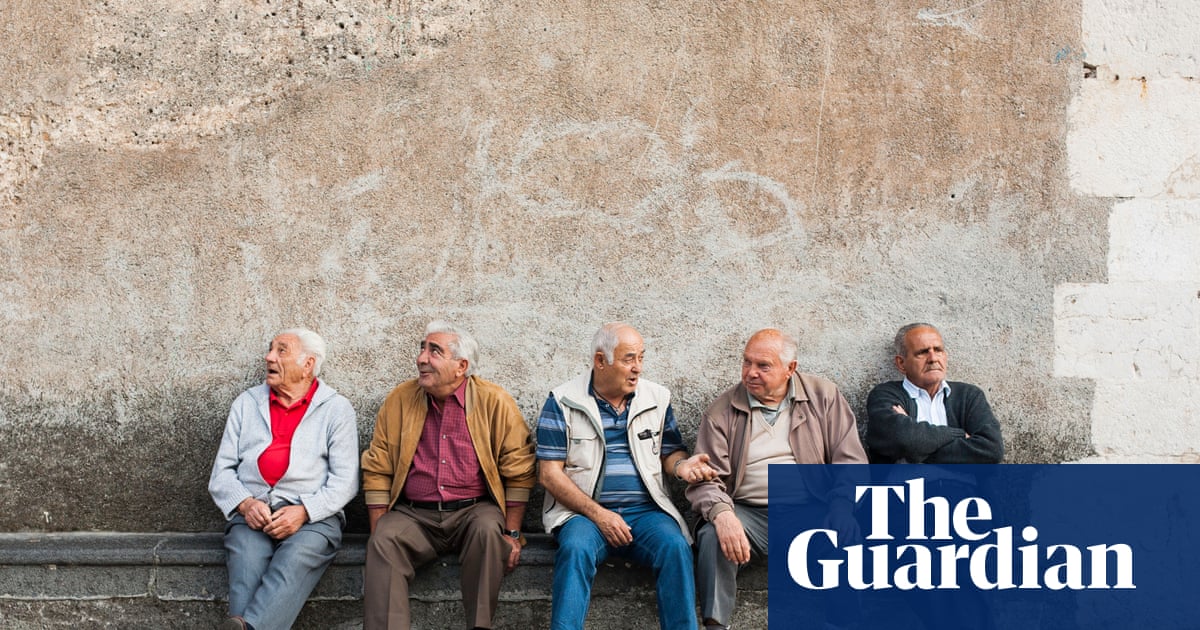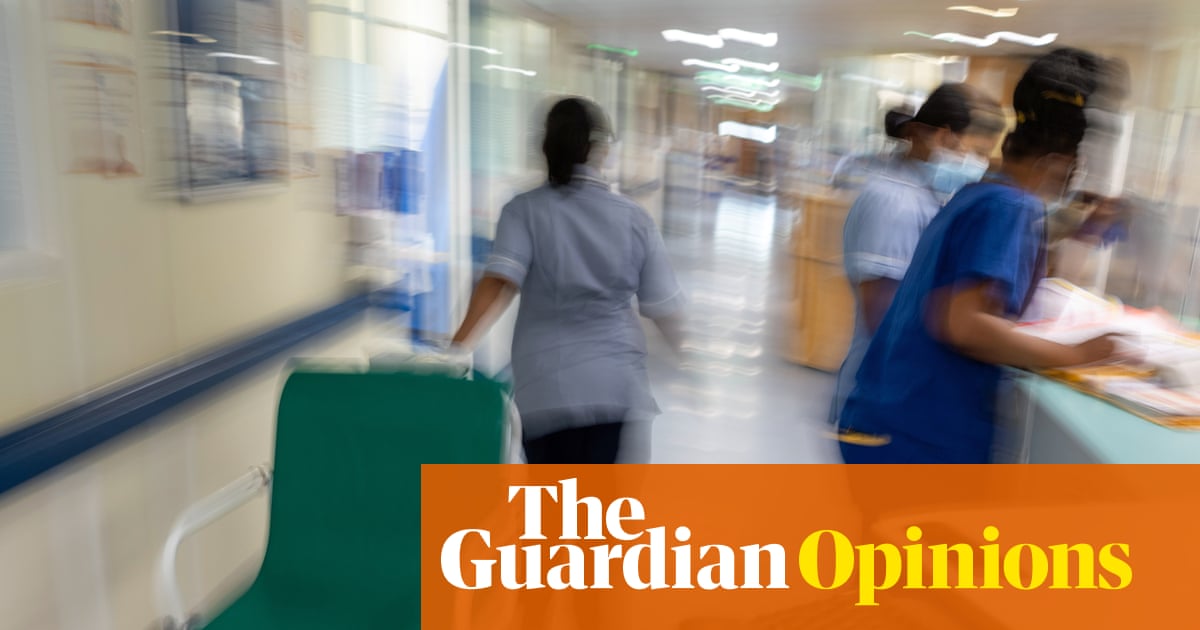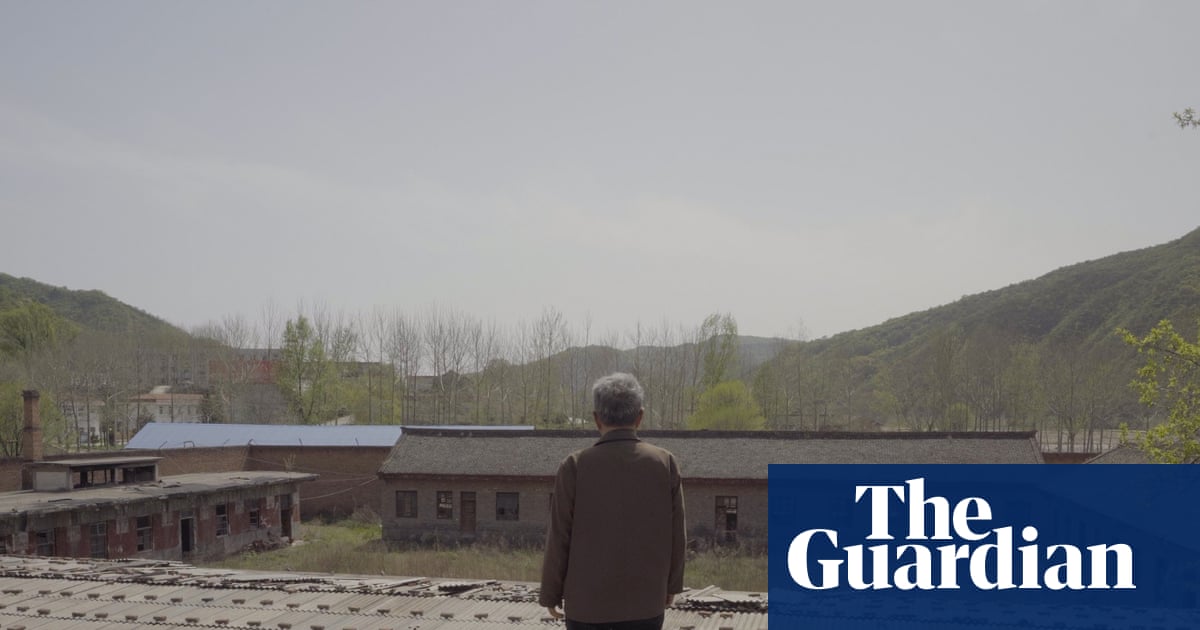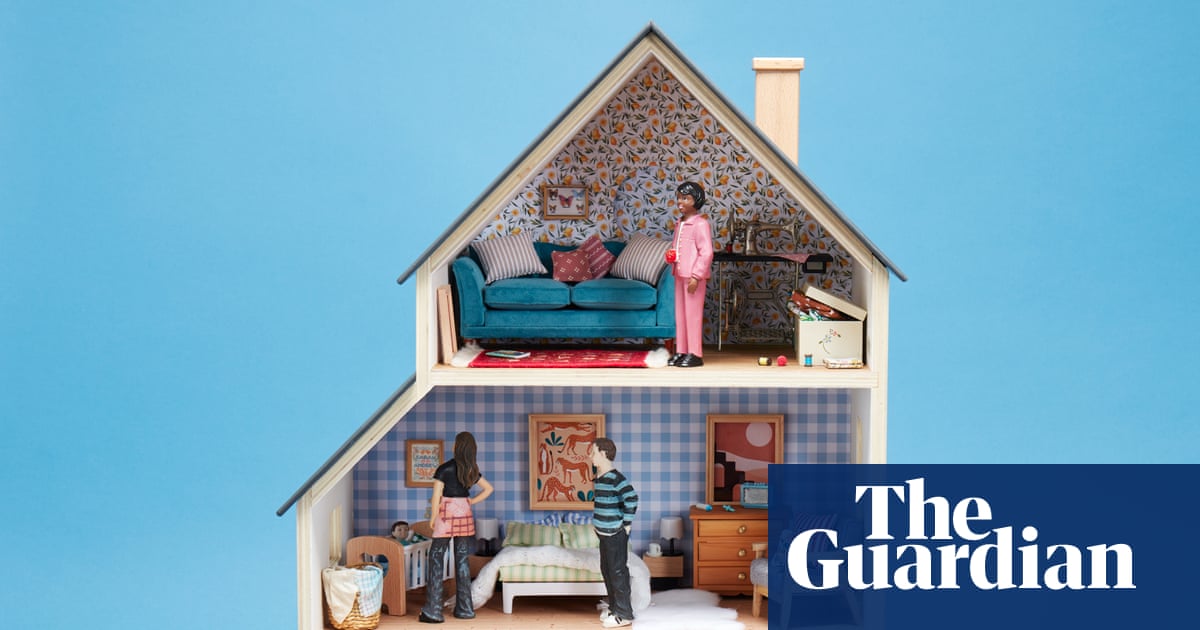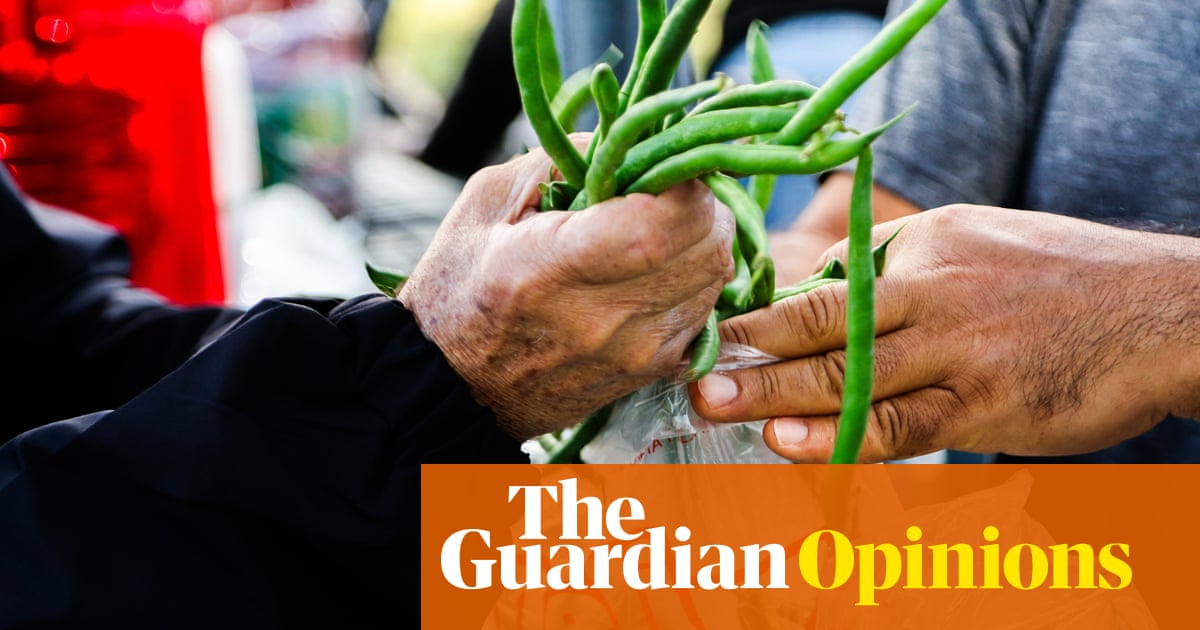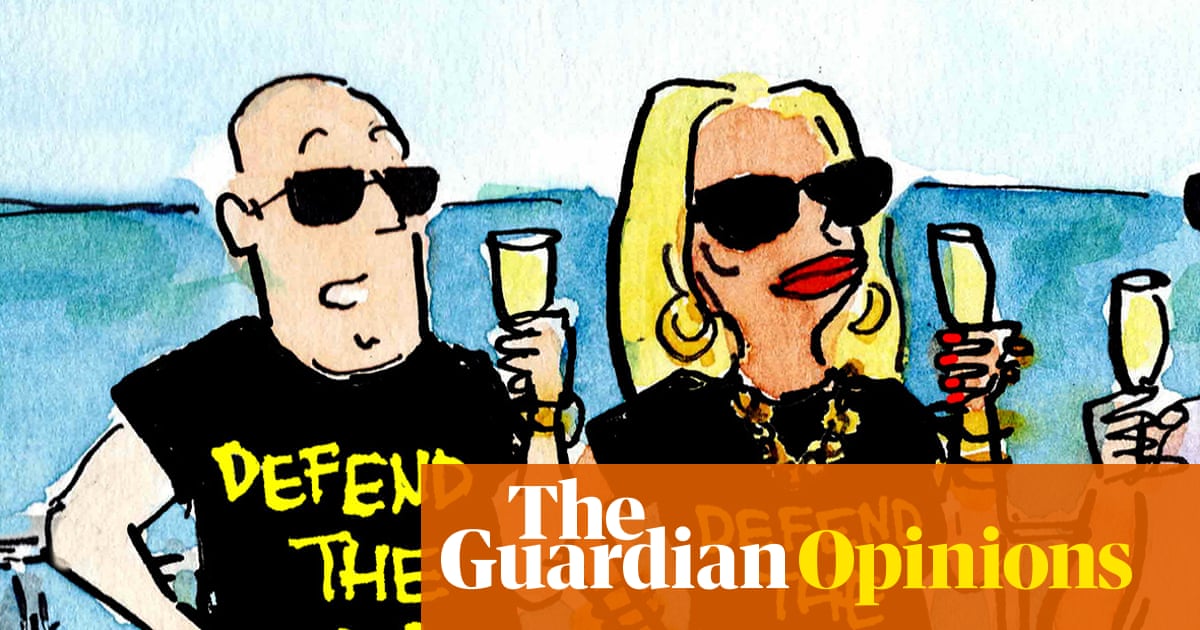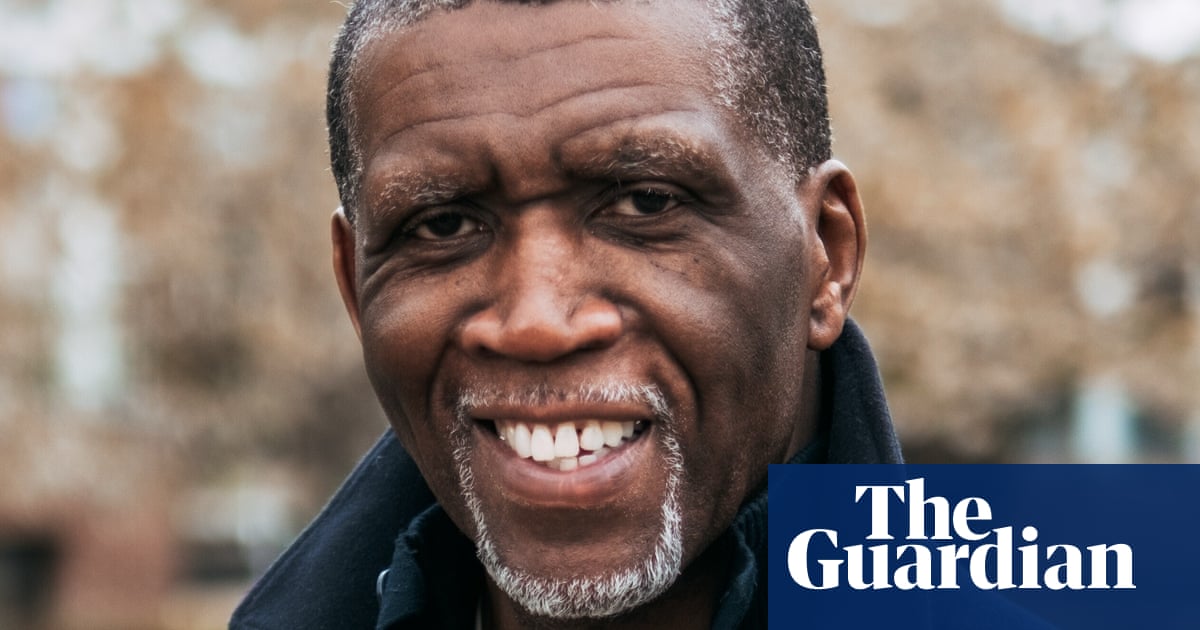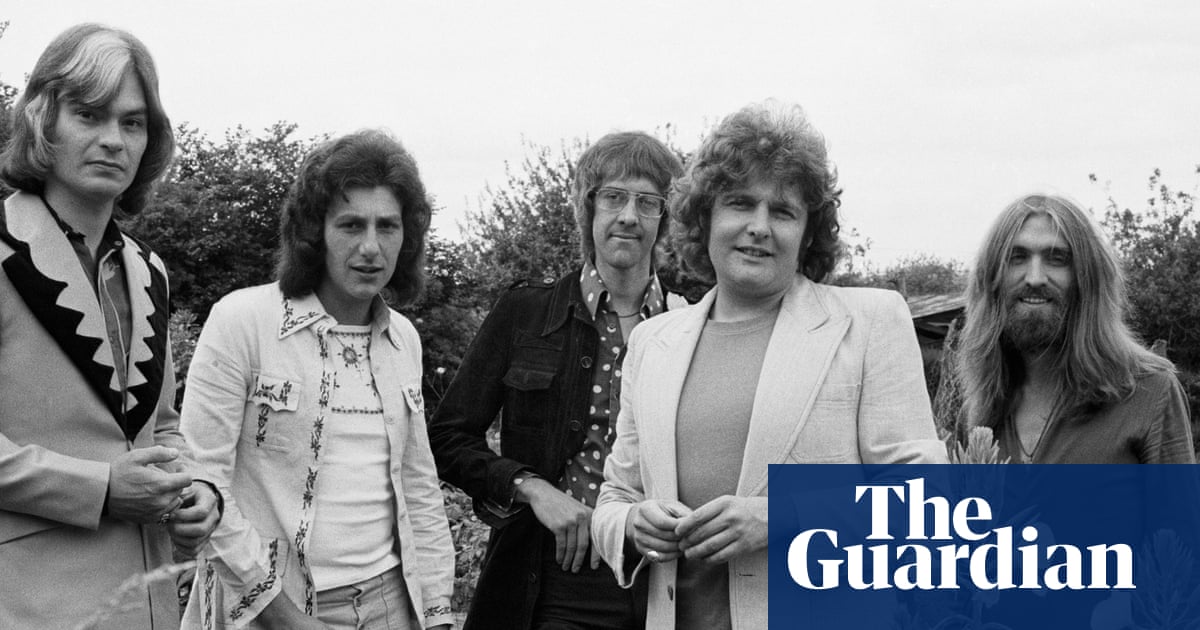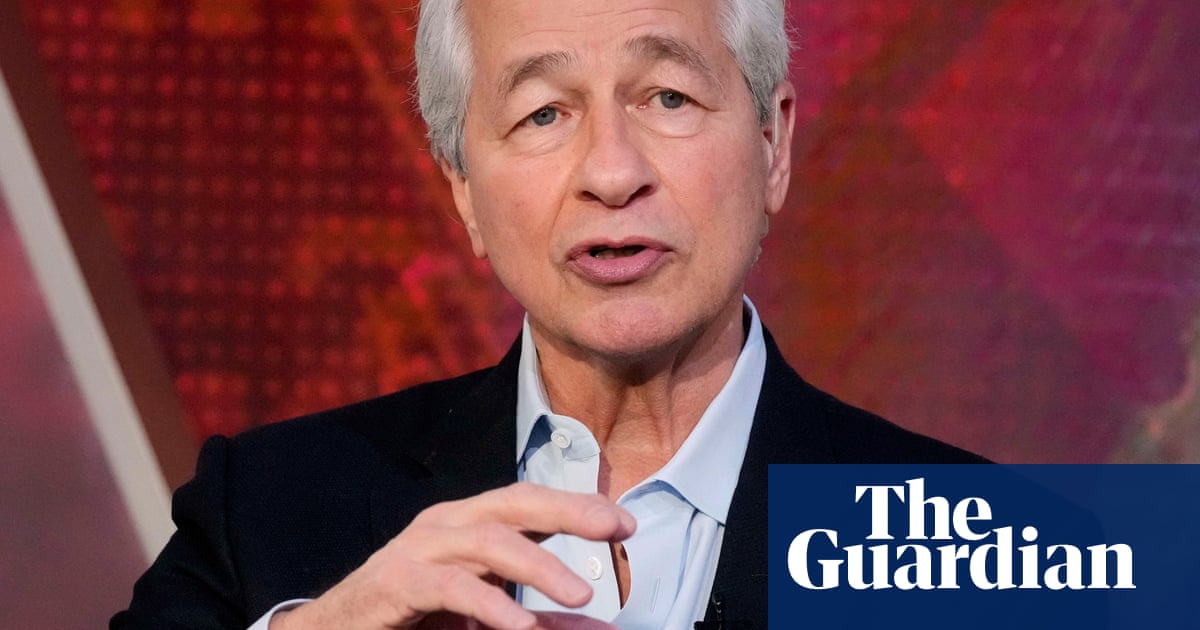Arriving in Manchester after moving up from London in 2013, I spotted something I took as a sign of how different my new life would be – how much cheaper, how much less pretentious. I told everyone back in London about the £1 Brew Stall at Piccadilly station. “Can you imagine being able to get a cup of tea at Euston for only a pound?” I would ask.
For a while, I was always seeking to prove I had not made a mistake leaving behind the bright lights of the capital city. I was the last staff reporter the Guardian had left in the whole of the north of England, and I felt isolated in a place no one in London really seemed to care about. It made me extremely chippy. This was a year before George Osborne anointed Manchester the centre of his fictional “northern powerhouse”; four before Andy Burnham abandoned Westminster to become the region’s mayor.
It irritated me when Londoners would sometimes ask after the north as if it were a foreign land – certainly more foreign to them than Paris or New York. But, truthfully, life was very different just two hours up the west coast main line. It was poorer, obviously. And, yes, wetter, too. But that combined to create its greatest asset: a population who never let a lack of funds or sunshine stop them from having a good time.
Once I ended up dancing outside Strangeways with a crowd who had gathered to watch a prisoner spending his third night up on the roof. There were kids in pyjamas, pulled from their beds; their mums in dressing gowns doing the Macarena. The protester was eventually coaxed down in a cherry picker with the promise of a takeaway pizza and a can of Coke, and gave the Manchester Evening News (MEN) the unimprovable quote: “I’ve had a mad one.”
Twelve years later, as I end my reign as North of England editor – staying in Manchester to present the Guardian’s daily news podcast but leaving behind the biggest northern reporting team we have had in decades – how things have changed. The £1 Brew Stall is a distant memory and I’m sad to report the £6 pint has well and truly arrived, along with £199 monthly gym membership and studio flats where you pay £1,200 a month rent and still have to eat your tea in your bedroom.
Last month the luxury Swiss watch brand Audemars Piguet chose Manchester as the location for its first UK boutique outside London, selling “timepieces” for six figures, displayed in cases shaped like honeycomb – the bougiest appropriation of the Mancunian worker bee I’ve seen yet, against increasingly strong competition.
Chanel put on a soggy catwalk show in the Northern Quarter 18 months ago, Puma recently relocated here and the English National Opera is coming soon, albeit unwillingly. Next year the Brit awards move up from London, and in October Soho House opens its first UK private members’ club outside the capital, with a rooftop pool everyone jokes will never need topping up.
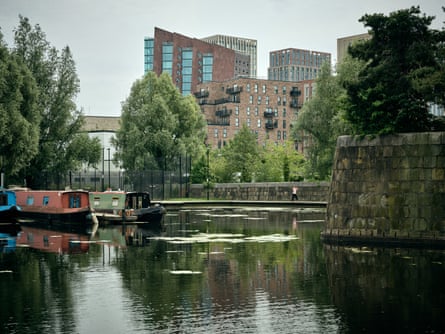
Some call this the Londonification of Manchester – a highly charged allegation in a city where the capital has long been used as an insult, a byword for everything Manchester isn’t – or wasn’t. Two years ago the Resolution thinktank made the mistake of comparing the cities unfavourably, pointing out – not unreasonably – that it was not ideal that Greater Manchester was 35% less productive than London, a larger gap than between France’s second city, Lyon, and Paris, which stood at just 20%. “Why do we want to be like London?” ran the headline of the MEN’s write-up of the report.
“Make Manchester Mancunian again!” goes the rallying cry. But is Manchester really becoming any less Mancunian? Or are Mancunians just changing, along with their ever expanding, shape-shifting city?
It’s a Thursday evening in late May and I’m in Deansgate Square, a collection of glistening skyscrapers that a few tiresome people persist in calling Manc-hattan. Is Manchester becoming more like London, I ask Iain Butterworth, a waspish florist working at the foot of one of the towers? “It is a bit,” he says, surrounded by £40 bouquets. “I personally like it because I don’t want this chatty northern stuff. You know when people say, ‘Oh, they’re a bit cold in London – no one chats to you at the bus stop’? I’m like, ‘I don’t want people to chat to me at the bus stop.’ So for me, it’s quite good.”
Butterworth, a scouser, came to Manchester in the 90s for the clubs. He likes how the city is changing: more shops, more restaurants, Korean supermarkets selling interesting noodles: “It’s less like London and more global.” Most of his customers are either Chinese or from Gulf states: rich foreign students whose parents don’t mind paying £2,500 a month in rent – and £30,000-plus in annual tuition fees. Almost 10,000 Chinese students are studying at the University of Manchester this year – 21% of the entire student body – as well as more than 1,000 from Saudi Arabia, Kuwait and the UAE.
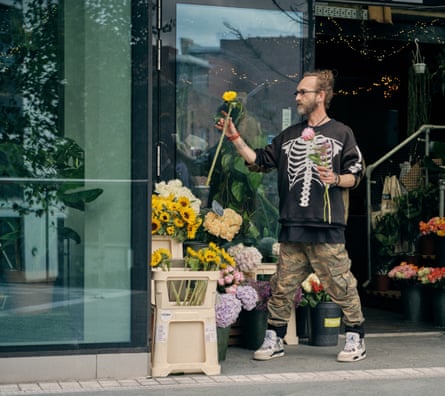
But many of the residents of the towers, he claims conspiratorially, are influencers or OnlyFans creators. “OnlyFans is massive. Humungous. The percentage of OnlyFans people in here is quite high.” He points up at the ceiling. “One of my friends is gay for pay and he made £2m last year. I know his girlfriend. He’s not even gay!” I look up this chap and can tell he’s filming in the towers, pressing his buff body against the ornamental safety grates that stop people falling out of the windows.
“The window cleaner told me he saw one girl filming a guy with like five other guys who were bent over on the couch,” Butterworth chuckles. “This is what I love about the lads here, they weren’t ashamed. One of them said to the window cleaner, ‘Hey, mate! Want to come and join in?’” Good old Mancunian hospitality.
Residents wanting a bit of body work can pop down to see plastic surgeon and boob job expert Reza Nassab, who recently counted Love Island contestant Samantha Kenny as a satisfied customer. He opened his Deansgate Square clinic three years ago, after toying with one in the capital and deciding London is “becoming a little bit saturated”. Such is demand that he has just opened his own private hospital in Manchester, the Deansgate Clinic. He likes operating on Mancunians. “Some London patients could be quite demanding, whereas up in the north, they tend to appreciate more what you do and the results they achieve,” he says.
So many influencers live in Colliers Yard, another high-rise cluster, that one on-site gym has designated hours for selfie-taking and content creation. An argument recently broke out on the residents’ WhatsApp group after an influencer did a photoshoot in the lift, blocking the doors with her shopping bags. One disgruntled tenant posted a screenshot and blamed her for the lifts always taking aeons to arrive. It all kicked off when the influencer’s boyfriend piped up to defend her. “That’s my girlfriend you’re talking about,” he said. “She’s everyone’s girlfriend for a fiver a month,” came the reply.
But despite the aggro, demand for these high-spec flats continues to outstrip supply, with Deloitte recently heralding the advent of tenant bidding wars, “similar to what has been seen in the London rental market”.
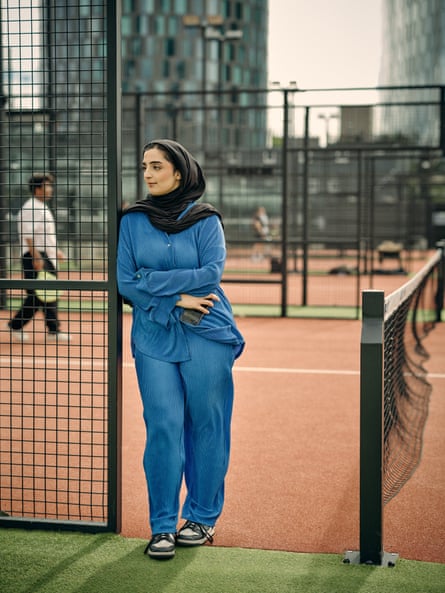
The classic signs of gentrification 10 years ago would have been a craft beer bar or a hipster haberdashery. Now it’s a padel club, and naturally Deansgate Square has its own hangout for people who like playing tennis but need an easier version. There’s a sauna and ice pool next door, too, if you want to play gentrification bingo.
Club de Padel opened at the end of 2023 and is booked out by locals and a surprising number of Kuwaitis when I visit. English teacher Zabeen, from nearby Bury, is having a knockabout with her Saudi Arabian students, who all say their favourite thing about Manchester is the weather. “They all rush to the window to take pictures every time it rains,” Zabeen says.
Club co-owner Lucy Noone Blake insists she can only think of good things about the Londonification of Manchester. Bike lanes, for one: a belated import from the capital (via Copenhagen and Amsterdam), they were finally installed over Covid at glacial speed. “I can’t remember the last time I used the car. I take my kids to school by bike, then I cycle to work,” she says.
Bike lanes were one of the things I missed when I moved up from London, along with reliable public transport, Turkish food, good sushi, lidos and a general feeling of being where the action is. Progress has since been made on most fronts: Burnham explicitly says he is trying to build a “London-style” transport system, the Bee Network of trams, trains and buses. Eight years into his reign, buses are now cheaper than when he began (£2 v £1.75 for a single in London). And a lido was recently granted planning permission on a new development in Holt Town, a fly-tipping hotspot in east Manchester.
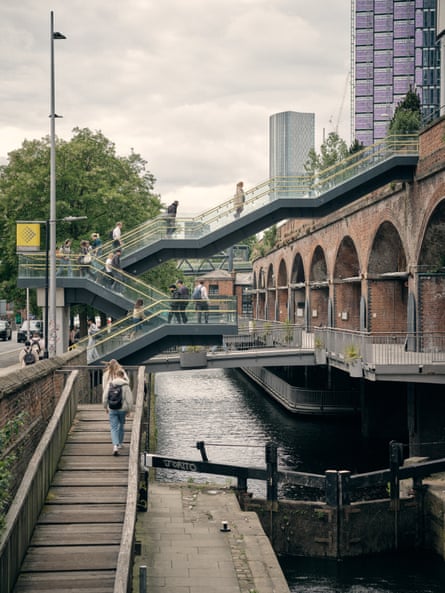
After leaving Leeds Beckett University in 2012, Noone Blake weighed up whether to move to London. Instead she came home to Manchester and became one of the launch team of Hawksmoor, the stupendously successful Manchester outpost of the London steak chain, which encouraged a whole generation of London restaurants to try their luck in the north. Recent implants include Blacklock chophouse, Pizza Pilgrims and the unforgivably named Sexy Fish. Lina Stores arrived in April, with Circolo Popolare, a Sicilian joint which is one of the first tenants in Gary Neville’s St Michael’s development, billed as “Manchester’s new five star destination – a visionary workspace with vibrant living”.
St Michael’s has taken Neville almost a decade to get off the ground, with initial plans scrapped after locals complained that they looked like “two massive turds pointing to the sky”. It involved him buying the only city centre synagogue, which he paid to have rebuilt elsewhere, and also a pub, the Sir Ralph Abercromby. He originally wanted to bulldoze that, too, but capitulated following howls of protest about losing a pub that bore witness to the Peterloo Massacre of 1819.
Louis Twist-Green, a city centre property consultant, says Neville’s project will push prices ever nearer London’s. “The apartments in there are scheduled to complete in 2027 and they are going to be the highest priced yet in Manchester. Their two-bedrooms are rumoured to be starting at £700,000, which would be the first development [in Manchester] that’s in line with the price per square foot of London,” he says.
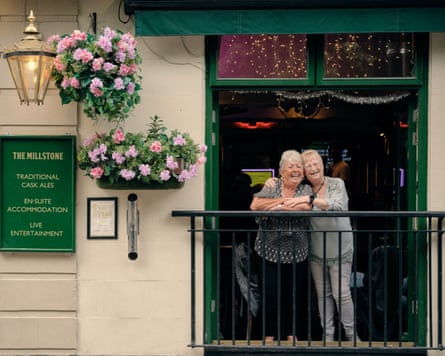
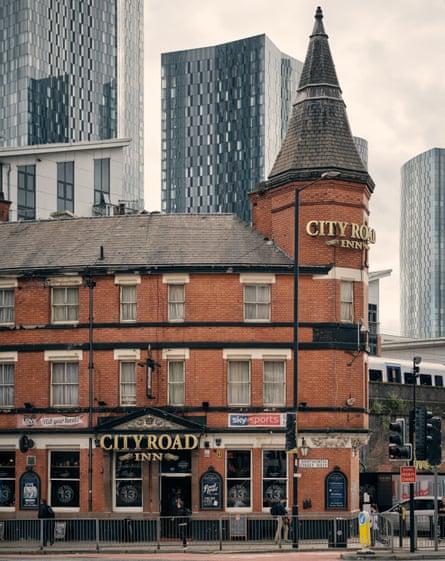
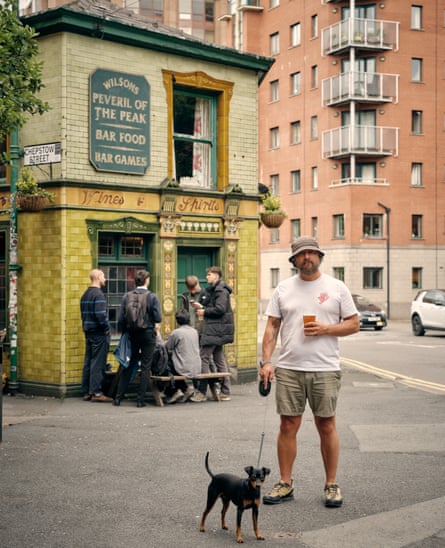
Two-beds in Deansgate Square go for £450,000, often snapped up by Middle Eastern parents so that their children don’t have to slum it in a Fresh Meat-style student houseshare. “It’s unbelievable how young they are to be living in such luxury apartments. They don’t know they’re born,” says Louis’s mum, Julie Twist, who founded the family estate agency in 1994 when “there were only 600 people living in the city centre”.
after newsletter promotion
According to estimates from Manchester city council, that number has now swelled to 95,000. Most of these new residents are on good money. “If they eat breakfast, lunch or dinner out four or five times a week, that’s four or five hundred thousand meal events happening in one demographic alone that didn’t exist not too long ago,” says hospitality consultant Thom Hetherington. The London blow-ins have not priced out local indies, he insists, singling out the Spärrows, Winsome and Erst for praise. He has no time for people moaning about supposedly London affectations, such as the plague of small plate joints selling cloudy natural wine for ungodly sums: “Saying ‘It’s a bit London’ is an emotive red flag. What it actually is a hipster or engaged foodie demographic that you’ll find in every western city in the world.”
One pub you wouldn’t find anywhere else is the beautiful Peveril of the Peak, a grade II listed building clad with emerald tiles that dates back to 1820. Among those enjoying an alfresco pint when I visit is Dr Kate Themen, a sociology lecturer at Manchester Metropolitan University who, like so many people in Manchester, was briefly in the Fall. She disapproves of the way the city has developed, saying up and coming artists and musicians – the kind the city trades so heavily on in its marketing and self-mythologising – can’t afford to live or practise centrally.
“There’s this tendency to push out the creativity that gave the city its character. The ultimate thing is if you keep on pricing people out, you’re going to be left with a bit of a shell of a city,” she says. “I don’t like to use the word gentrify, because it doesn’t really encapsulate what’s going on: that push towards becoming a much more consumptive and transitional space.”
A few years ago, dozens of local bands lost their practice rooms when Brunswick Mill, an old cotton mill in the rapidly gentrifying New Islington district, was given planning permission to be turned into luxury flats. Off-plan apartments were recently advertised for £250,000, with landlords told to expect yields of 6.7%.
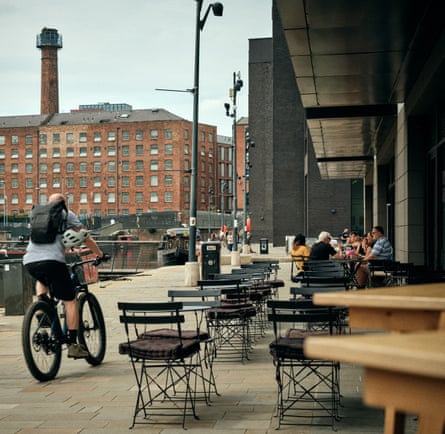

Despite its London connotations, New Islington is the historic name for an area dating back to the early 19th century. It’s better known to some locals as Miles Platting – one of the poorest wards in Manchester, where life expectancy is 11 years less than in Piccadilly, just 15 minutes’ walk away in town. Gentrification is coming fast as the city centre creeps north-east. Just one old pub remains in Miles Platting – the Bradford Inn, where you can still get a pint for £3.85, less than half the price inside the new Co-op Live arena around the corner.
I ask Sean, a 34-year-old coach builder having a bargain liquid lunch, if he thinks Manchester is becoming more like London. He can’t answer that because he has never been to London – “never had a reason to” – but nor does he really go into town either. “It’s not for us,” he says. “All those posh apartments that we could never afford. It’s a playground for the rich, isn’t it?”
I walk into the estate and get chatting to David Taylor, a 62-year-old care worker who is sitting on an office chair in his front garden, blowing bubbles for Mia, his 19-year-old tortoiseshell cat. The new high-rise towers are “nice”, he says, but not for normal people. “They’re for people like you,” he says, gesturing at me in a not entirely complimentary fashion. “Professionals.” He offers me a can of pop as a peace offering, then makes fun of me for living in Stockport.
He finds the new Mancunians baffling, “always going running” and keeping “tiny furry little dogs” in their overpriced flats. He cannot fathom the queues outside Pollen, a hipster bakery on Cotton Wharf just down the canal. “I went once, but all that queueing up, just for a croissant? Nah.” I decide not to alert him to the area’s newest coffee joint, Voodoo, which doubles up as a running shop and sells shorts for £150.
Jain Edwards is a comedian who makes deadpan Instagram videos satirising the new Manchester, “a nightmare of overpriced novelty cocktails, retro fonts and burgers named after serial killers”. Edwards moved to Manchester from Rhyl in north Wales to go to university in 2010 and sees herself as part of the creative working class. “It’s actually surreal how fast it has changed. I think it just feels like the main reason for moving here isn’t due to a love of Manchester, it is due to it being (a bit) cheaper than London. There’s a feeling that newbies don’t want Manchester, they want London, so that naturally affects how they interact with the place. And because money talks, the city will always adapt to this fast cash above all else.”
She dislikes the newcomers’ “hyperconsumption … a constant need for London-style experiences of food and drink at a scale that feels new in Manchester”. That and the way they rush around the city: “I have never been so pushed about, bumped into without someone apologising … There was never a hostility to how people walked around Manchester. This comes down to the self-entitlement of interacting with the place, also forgetting that Manchester isn’t that big? I walk around this city stopping and chatting to people I know. I recognise people, see the same people all the time. You don’t ‘never see people again’, like in London. It isn’t the same vibe; there isn’t the same anonymity. This is why I have always thought everyone calls it ‘town’. There was always something town-like to the place.”
In the Northern Quarter, Botswanan law student Yao Tafa, 25, agrees. “People are much nicer here,” she says. “I come from a place where we greet each other, people say hi, you help each other. In London you don’t get that.” It’s easier to make friends here, she adds: “There’s more freedom to be who you are, whether that’s part of the LGBT community or just to dress a certain way.”
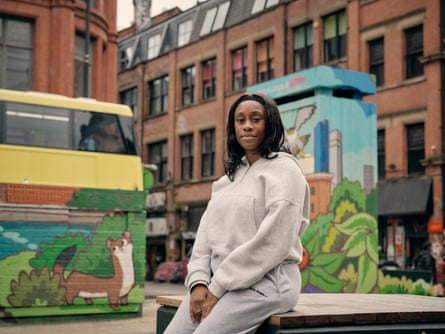
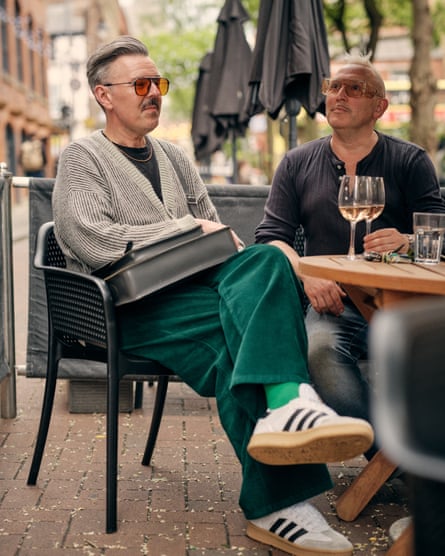
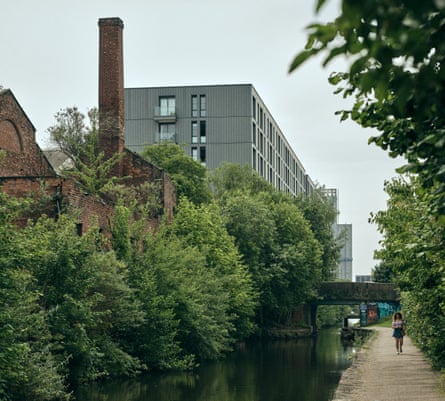
For David and Chris, two drama teachers enjoying a glass of rosé on Canal Street, being gay in Manchester used to mean “having your wits about you”, David says. If the Londonisation of Manchester means “it’s more cosmopolitan, with more openness and acceptance of difference”, then they welcome it, Chris says.
Local content creator and PR director Alicia Boukersi, who posts as Life In Manc, loves Mancester, but worries that while the city may feel “cool and Instagrammable”, it seems “more like a costume than the city’s actual identity. It’s still got an edge, a humour and a character that London can’t touch. But there’s a risk of us losing that if we keep importing trends and pricing out people and places that made this city exciting in the first place.”
Jack Barton, head of communications and impact at homelessness charity Mustard Tree, says Manchester’s housing crisis is the city’s “great shame”. In 2023, one in 71 people were homeless in Manchester – only London has a worse rate. A staggering 19,000 people are on the waiting list for social housing. Outside the Guardian’s Manchester office, a mini tent city recently cropped up around a statue of Abraham Lincoln, installed to recognise the solidarity of the city’s cotton workers during the abolition of slavery – a reminder that Mancunians once made stuff for a living.
“Manchester used to be more equal,” Barton says. “Now the gap is greater and more visible – much like our London counterparts. A change in leadership at the council and positive focus is encouraging, but the reality is the city has suffered by not building houses of any type, resulting in an inflated housing market.”
Bev Craig became leader of Manchester city council in 2021 and is clearly irritated at the notion that it might be becoming in any way like London – though she dreams of a Mancunian tube: “By 2050, for Manchester to be sustainably growing and connecting people into it, we will have to think about how you route trams underground.” Earlier this month, Burnham went further, saying he had instructed Transport for Greater Manchester to “start planning” for an underground network. Craig insists she doesn’t look to London for inspiration, but to Melbourne, Barcelona, Lyon, Vancouver or Austin, Texas: “All of the international evidence shows that cities that aren’t the capital thrive in the longer term when they differentiate themselves.”
She knows that housing is an issue, but insists “last year we built more council and social homes in the city of Manchester than at any point in well over a decade”. On Downley Drive in New Islington, near pubs that are too cool to serve pints (schooners only: two-thirds of the liquid for three-thirds of the price of a pint!), 52 flats are being built for social rent, alongside 75 “affordable” homes. Across the city, despite spiralling prices, according to Manchester city council the average house still costs around 60% less than in London (£277,750 in Manchester v £682,190 in London), with rent on the average two-bed 34% cheaper (£1,394 in Manchester v £2,118 in London). Disposable income for the average renter is more or less the same in both cities, with the median salary of a Manchester resident £32,704, two-thirds of the £49,455 you can expect in London.
So is Manchester becoming like London? Yes – and no. But I know where I’d much rather live. It may now cost more than a pound for a cup of tea, and you can sometimes wait five minutes for a bus without anyone chatting your ear off. But you’ll never have a bad night out. You might even have a “mad one”.

.png) 3 months ago
45
3 months ago
45
